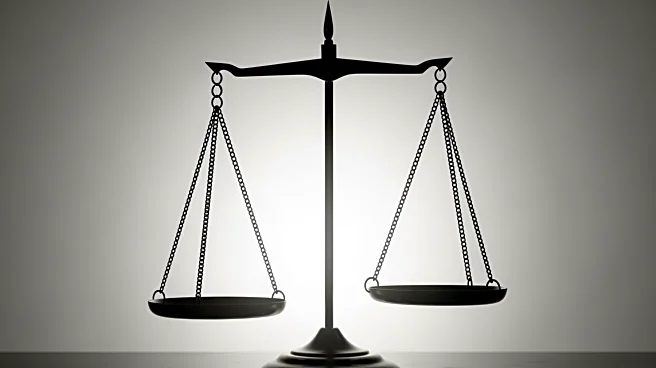What's Happening?
The Supreme Court is currently reviewing the Trump administration's use of the International Emergency Economic Powers Act (IEEPA) to impose tariffs on imports from over 100 countries. During oral arguments,
Solicitor General D. John Sauer defended the administration's position, asserting that the tariffs are regulatory measures rather than taxes. However, the justices expressed skepticism, noting that tariffs traditionally fall under Congress's authority to tax. The case challenges whether President Trump exceeded his authority by using national security as a rationale for imposing tariffs, which have raised significant revenue for the government. The court's decision is anticipated next year, following lower courts' rulings that Trump had overstepped his authority under both the statute and the Constitution.
Why It's Important?
The outcome of this Supreme Court case could have significant implications for U.S. trade policy and presidential powers. If the court rules against the Trump administration, it may limit the executive branch's ability to unilaterally impose tariffs under the guise of national security. This could shift more power back to Congress, reinforcing the legislative branch's role in taxation and trade regulation. The decision could also impact the U.S. economy, as tariffs have been used to generate substantial revenue and influence international trade relations. Stakeholders such as businesses, trade partners, and policymakers are closely monitoring the case, as it could reshape the balance of power between the executive and legislative branches.
What's Next?
The Supreme Court's decision is expected next year, which will determine the legality of the Trump administration's tariffs under IEEPA. If the court rules against the administration, President Trump may need to seek congressional approval for future tariff measures. This could lead to legislative debates and potential changes in U.S. trade policy. Additionally, the ruling may set a precedent for how future administrations can use emergency powers in economic matters. Political leaders, businesses, and international trade partners are likely to react to the decision, as it will influence U.S. trade strategy and economic policy.
Beyond the Headlines
The case highlights broader questions about the separation of powers and the scope of presidential authority in economic matters. It underscores the constitutional principle that taxation should be subject to deliberation among elected representatives, rather than unilateral executive action. The decision could have long-term implications for how emergency powers are interpreted and applied in various contexts, including climate change and other national security issues. It also raises ethical considerations about the use of tariffs as a tool for fiscal policy, rather than purely regulatory purposes.









